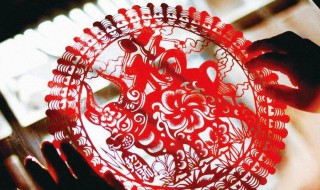
1、The Chinese New Year is now popularly known as the Spring Festival because it starts from the Begining of Spring (the first of the twenty-four terms in coodination with the changes of Nature). Its origin is too old to be traced. Several explanations are hanging around. All agree however that the word Nian which in modern Chinese solely means year was originally the name of a monster beast that started to prey on people the night before the beginning of a new year.
One legend goes that the beast Nian had a very big mouth that would swallow a great many people with one bite. People were very scared. One day an old man came to their rescue offering to subdue Nian. To Nian he said I hear say that you are very capable but can you swallow the other beasts of prey on earth instead of people who are by no means of your worthy opponents? So it did swallow many of the beasts of prey on earth that also harrassed people and their domestic animals from time to time.
After that the old man disappeared riding the beast Nian. He turned out to be an immortal god. Now that Nian is gone and other beasts of prey are also scared into forests people begin to enjoy their peaceful life. Before the old man left he had told people to put up red paper decorations on their windows and doors at each years end to scare away Nian in case it sneaked back again because red is the color the beast feared the most.
From then on the tradition of observing the conquest of Nian is carried on from generation to generation. The term Guo Nian which may mean Survive the Nian becomes today Celebrate the (New) Year as the word guo in Chinese having both the meaning of pass-over and observe. The custom of putting up red paper and firing fire-crackers to scare away Nian should it have a chance to run loose is still around. However people today have long forgotten why they are doing all this except that they feel the color and the sound add to the excitement of the celebration.
2、中国的新年现在被普遍称为春节,因为它从春天开始(二十四节气中的第一个节气与自然的变化相协调)。它的起源太古老了,无法追溯。有几种解释正在流传。然而,所有人都同意,“年”这个词在现代汉语中的唯一意思是“年”,它最初是一种怪兽的名字,在新年的前一天晚上开始捕食人类。
传说年兽有一张大嘴巴,一口就能吞下很多人。人们非常害怕。一天,一位老人来救他们,提出要制服年。他对年说:“我听说你很能干,但是你能吞下地球上其他的猛兽,而不是那些根本不是你的对手的人吗?”因此,它确实吞下了地球上的许多猛兽,这些猛兽也时不时地折磨着人们和他们的家畜。
之后,老人骑着兽年消失了。他原来是个不朽的神。现在年已经不在了,其他的猛兽也被吓进了森林,人们开始享受他们平静的生活。老人走之前,他曾告诉人们每年年底都要在门窗上挂上红纸装饰物,以吓跑年兽,防止它再溜回来,因为红色是野兽最怕的颜色。
从此,观察年征服的传统一代一代地传承下来。“过年”一词,意思是“过年”,今天变成了“过年”,因为“过”一词在汉语中既有“过”的意思,也有“过”的意思。贴红纸、放鞭炮吓跑年兽的习俗仍然存在。然而,今天的人们早已忘记了他们为什么要这么做,只是他们觉得颜色和声音增加了庆祝的兴奋。